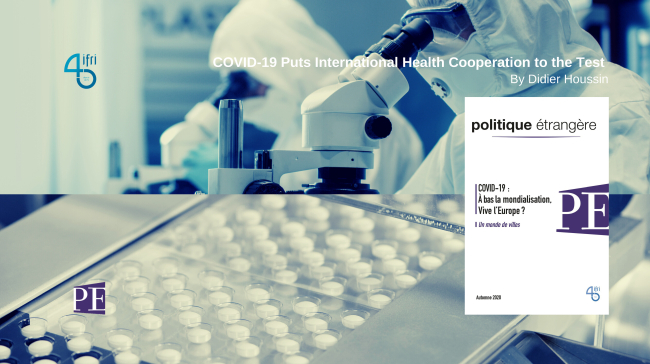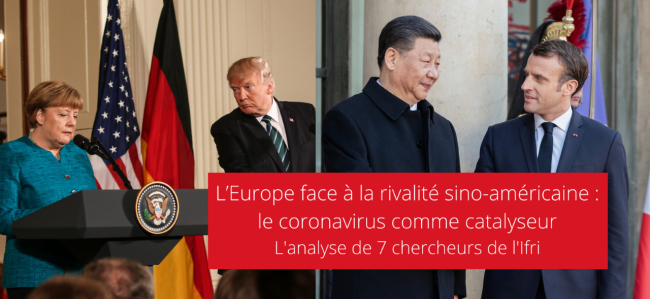
Practical information
A "Les Jeudis de l'Ifri" videoconference around Marc JULIENNE, Research Fellow and Head of China Research at Ifri's Center for Asian Studies.

If we stick to the official Chinese discourse, the Sino-European relationship has never seen so many development opportunities as it does today. The fight against climate change, the promotion of multilateralism in the face of American unilateralism, the management of COVID-19... In all these issues, Beijing sees the alignment of European and Chinese interests. Paradoxically, the tone is hardening in Europe and the consensus is broadening to adopt a more firm common policy towards China. In the aftermath of the EU-China summit in September 14th, 2020, and a few weeks before the United States presidential election, how can this dichotomy be understood and what prospects does it draw for the future of this relationship's ?
Chair : Thomas Gomart, director of Ifri.
This debate is for corporate members only. It will be conducted in French.
Speakers
Find out more
COVID-19 Puts International Health Cooperation to the Test
The COVID-19 pandemic catalyzed international tensions, in particular between China and the United States.

Covid-19 in Europe-China Relations: A country-level analysis
Analysis from 19 countries reveals the complexities of Europe’s relations with China amid the Covid-19 crisis.
L'Europe face à la rivalité sino-américaine : le coronavirus comme catalyseur
La pandémie de coronavirus agit comme un double catalyseur. De manière visible, elle teste la résilience de l’Union européenne (UE) et de ses membres, tiraillés entre la Chine d’où est parti le virus et les États-Unis où il arrive.
Related Subjects
Other events

Paris Naval Conference 2026: Naval Rearmament and Operations in Contested Waters
This fourth edition of the Paris Naval Conference (CNP), bringing together high-level military, industrial, and academic speakers, will address the challenges associated with general naval rearmament and naval operations in increasingly contested environments.









